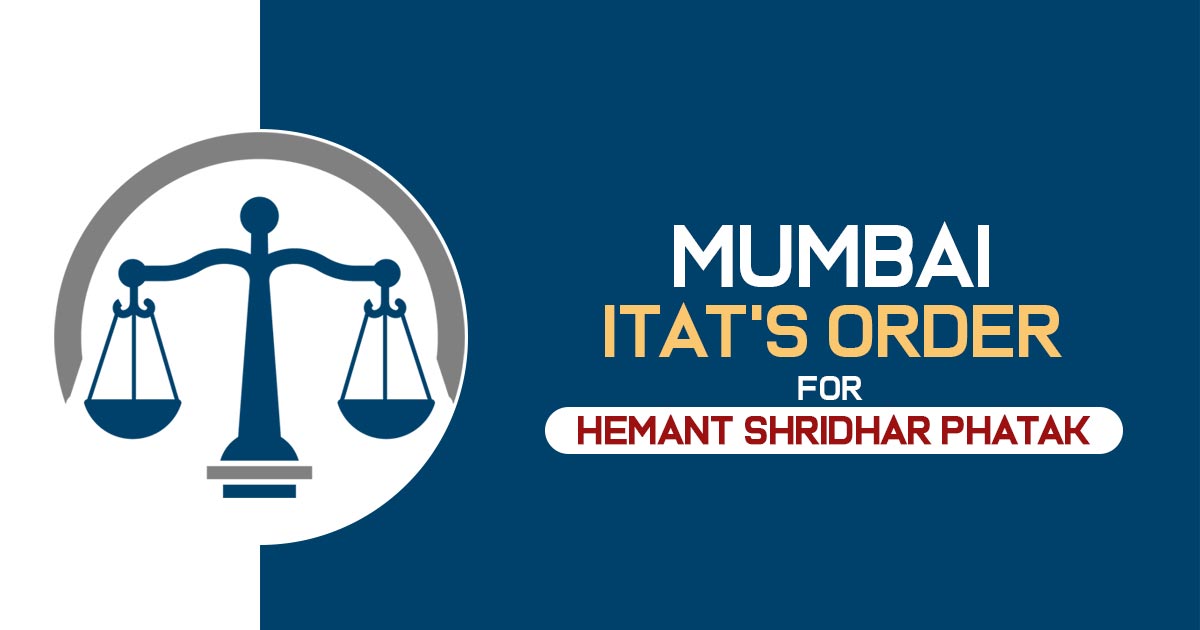
The Income Tax Appellate Tribunal (ITAT), the Mumbai Bench ruled that under Section 54 of the Income Tax Act, 1961, the claim of capital gain exemption on construction of a residential house completed within 3 years is approved and removed the penalty levied under Section 271(1)(c) of the Income Tax Act.
Hemant Shridhar Phatak, the assessee, booked two flats jointly with his wife on 18/4/2011. He sold another flat on 04/08/2012, and he received possession of the flats on 26/11/2014. In his income tax return, he demanded an exemption of Rs. 45,46,285 under Section 54 of the Income Tax Act for the long-term capital gains from the residential house sale.
The Assessing Officer, during the scrutiny assessment, argued that residential flats had been booked more than one year before the date of the residential house’s transfer. Additionally, the possession of the flat was provided two years after the transfer of the residential house.
Therefore, the assessee is not entitled to claim the exemption under Section 54 of the Income Tax Act. Consequently, the Assessing Officer took action imposing a penalty under Section 271(1)(c) of the Income Tax Act after disallowing the assessee’s claim.
Unsatisfied with the assessment order, the assessee filed an appeal before the Commissioner of Income-Tax (Appeals). Unfortunately, the CIT(A), in the impugned order, upheld the Assessing Officer’s findings and rejected the assessee’s appeal.
Seeking further recourse, the assessee filed an appeal before the ITAT. The Authorised Representative of the assessee, Devang Divecha, emphasised that when the flats were booked, they were still under construction. It was only upon the completion of construction in 2014 that the assessee received possession of the flats.
He contended that one of the conditions under Section 54 of the Income Tax Act to claim exemption was the construction of one residential house in India within three years after the date of transfer of the long-term capital asset.
Read Also: Gujarat HC Rules That GST Only Payable on Construction Cost Instead of Land Cost
On the other hand, the Departmental Representative, Dinesh Chourasia, argued that the assessee acquired the new property beyond the specified time limit outlined in Section 54 of the Income Tax Act to claim the exemption.
However, the Bench, consisting of Vikas Awasthy, Judicial Member, and Amarjit Singh, Accountant Member, determined that the assessee was indeed eligible to claim the exemption under Section 54 of the Income Tax Act since the construction of the residential house was completed within three years from the relevant date.
Additionally, the Tribunal noted that merely because the Assessing Officer rejected the assessee’s claim for exemption under Section 54 of the Income Tax Act, it did not warrant the imposition of a penalty under Section 271(1)(c) of the Income Tax Act. Consequently, the penalty levied under Section 271(1)(c) of the Income Tax Act was removed.
| Case Title | Hemant Shridhar Phatak Vs. The Asst. Commissioner of Income Tax |
| Citation | ITA NO.267 & 268/MUM/2023(A.Y.2013-14) |
| Date | 15.06.2023 |
| Appellant by | S/Shri Devang Divecha & Bharat Vyas |
| Respondent by | Shri Dinesh Chourasia, Sr.AR |
| ITAT Mumbai | Read Order |